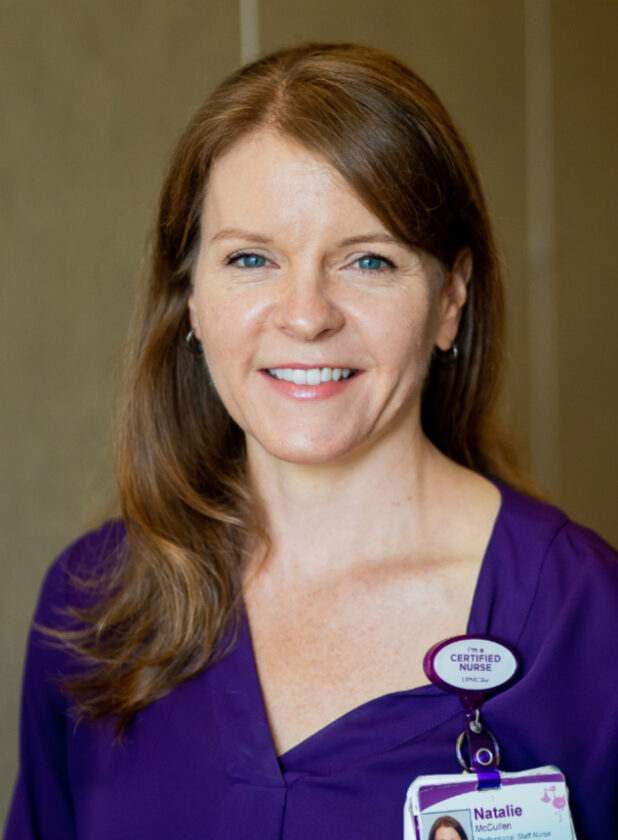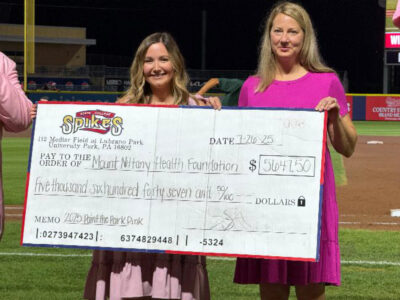The power of breastfeeding

Natalie McCullen
Breastfeeding is a personal choice, and one that comes with powerful health benefits for both mother and baby. August is National Breastfeeding Awareness Month, making it a great time to highlight how nursing supports lifelong wellness, strengthens bonds and can even benefit communities as a whole.
Health
Benefits for Baby
Breast milk is often called “liquid gold” because of how perfectly it is tailored to meet an infant’s needs. It contains the ideal mix of nutrients, antibodies and enzymes to support healthy growth and development. Research shows that breastfeeding can:
— Reduce the risk of infections, including ear infections, respiratory illnesses and diarrhea.
— Lower the likelihood of developing asthma, obesity and Type 2 diabetes later in life.
— Promote better brain development and cognitive performance.
Breastfeeding is also linked to a lower risk of Sudden Infant Death Syndrome (SIDS), especially when continued through the baby’s first six months.
Health Benefits for Mom
The benefits of breastfeeding are not one-sided. Nursing can help mothers recover from childbirth more quickly by stimulating uterine contractions, which reduces postpartum bleeding. Over time, breastfeeding has been shown to:
— Lower the risk of breast and ovarian cancers.
— Reduce the likelihood of developing Type 2 diabetes and high blood pressure.
— Support natural weight loss after pregnancy.
It can also offer emotional and mental health advantages, such as improved bonding and a reduced risk of postpartum depression.
How Communities Benefit
Beyond individual families, breastfeeding offers wide-reaching public health benefits. Fewer infections and chronic conditions in infants lead to lower health care costs for families and the health care system. Breastfeeding also reduces packaging waste and energy use associated with formula production, making it a more environmentally friendly option. Breastfeeding/breast milk feeding can be lifesaving in times of emergencies and natural disasters when resources may be limited.
Communities that support breastfeeding — through lactation-friendly workplaces, public spaces and health care policies — often see better health outcomes and higher employee satisfaction. Over time, this contributes to a healthier population and less strain on public health resources.
Support and Flexibility
Matter
While breastfeeding is natural, it is not always easy. Many mothers face challenges, including latch issues, milk supply concerns and the need to balance breastfeeding with work and other responsibilities. Some mothers may choose or need to express milk to feed their baby by bottle. Support from family members, health care providers, lactation consultants and employers can make a big difference in helping new parents reach their feeding goals.
It is also important to acknowledge that not everyone can or chooses to breastfeed or provide breast milk, and that is completely OK. Some families may have experiences that are out of their control, and these may impact feeding practices. Modern infant formula, when prepared safely, is nourishing and designed to support healthy development. If you are unable to breastfeed or decide it is not the right choice for your family, you are still giving your baby the love, nutrition and care they need to thrive.
The most important thing is to explore breastfeeding first, understand your options and the support available and make the informed decision that works best for you and your baby — free from guilt or judgment.
— — — —
Natalie McCullen, RN, is an international board-certified lactation consultant and sees patients at UPMC Magee-Womens Birthplace in Williamsport, 700 High St. To schedule an appointment with Natalie, call 570-321-2092. For more information about UPMC Magee-Womens services in northcentral Pa., go to UPMC.com/WomensHealthNCPA.





